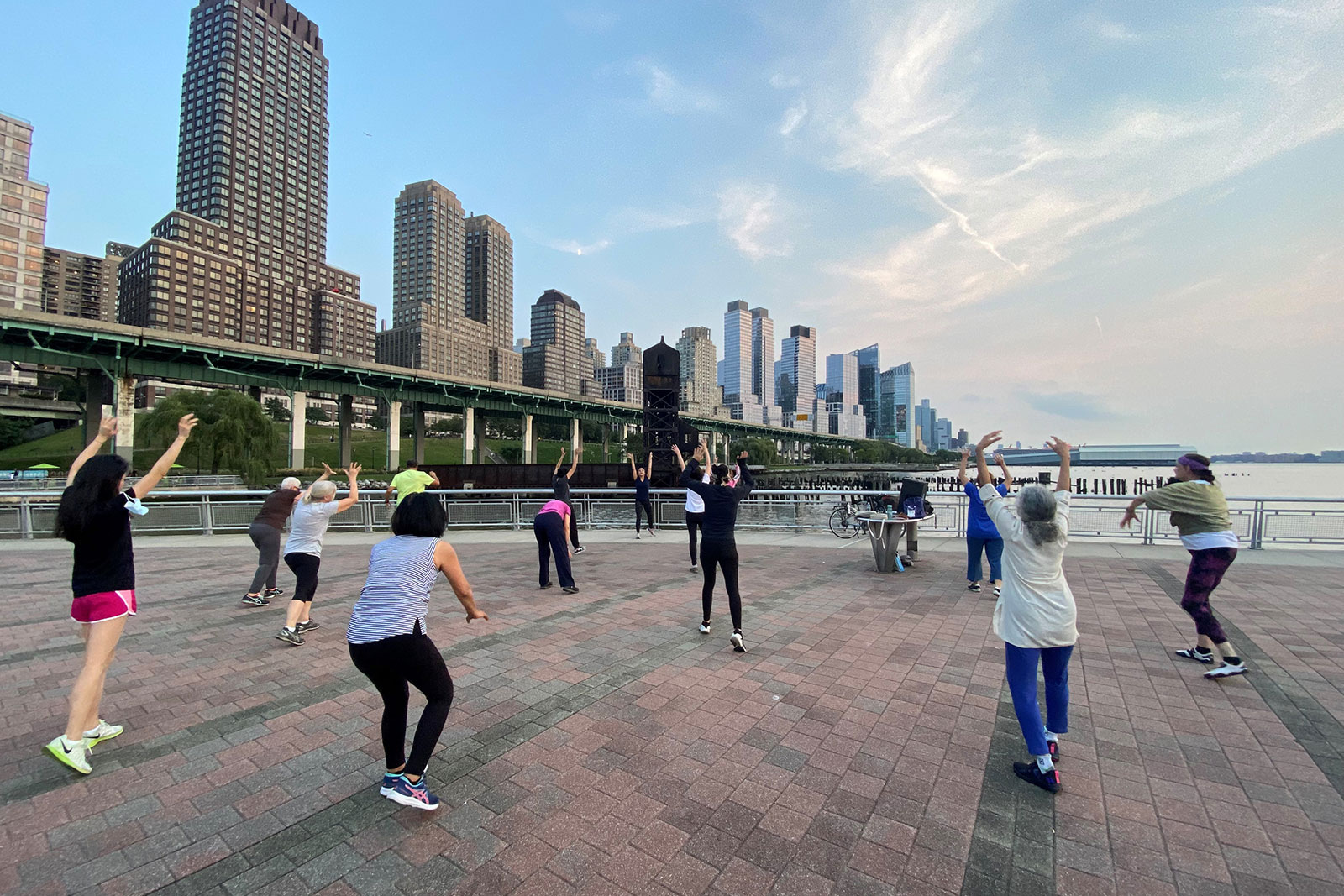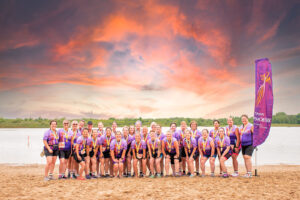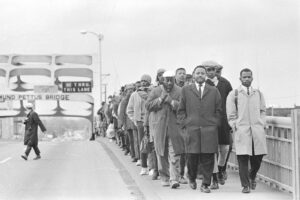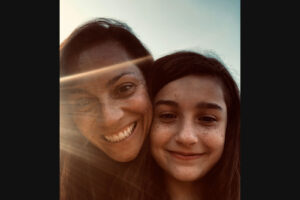The word “movement” may seem straightforward, but breaking down the actual practice can offer a deeper look into the mind-body connection, especially during the cancer journey. That’s why Moving For Life advocates for mindful movement as a means toward cancer prevention and recovery.
Through free and low-cost dance exercise classes, the nonprofit builds upon science-based research that therapeutic dance can improve quality of life, quicken recovery time and reduce risk of recurrence. What originally began as a means to address minimal resources for breast cancer exercise programs has blossomed into a community hub where warriors of all cancer types and backgrounds engage in reconnecting with their bodies through somatic movement.
Somatic movement consists of gentle movement as an intentional and liberating act. Rather than focusing on the outer result of a movement, you zone in on the internal events occurring with every step—breathing quickening, tension releasing, relief flooding.
“We look at psychophysical components. How you carry your body is a reflection of how you feel, emotionally and attitudinally. The body-mind connection is at the heart of somatic movement, as well as the whole idea of being conscious of your movements, paying attention to inner cues, becoming alert to any sensation,” explains Dr. Martha Eddy, an exercise physiologist and registered somatic movement therapist (RSMT) who is one of the co-founders of Moving For Life.
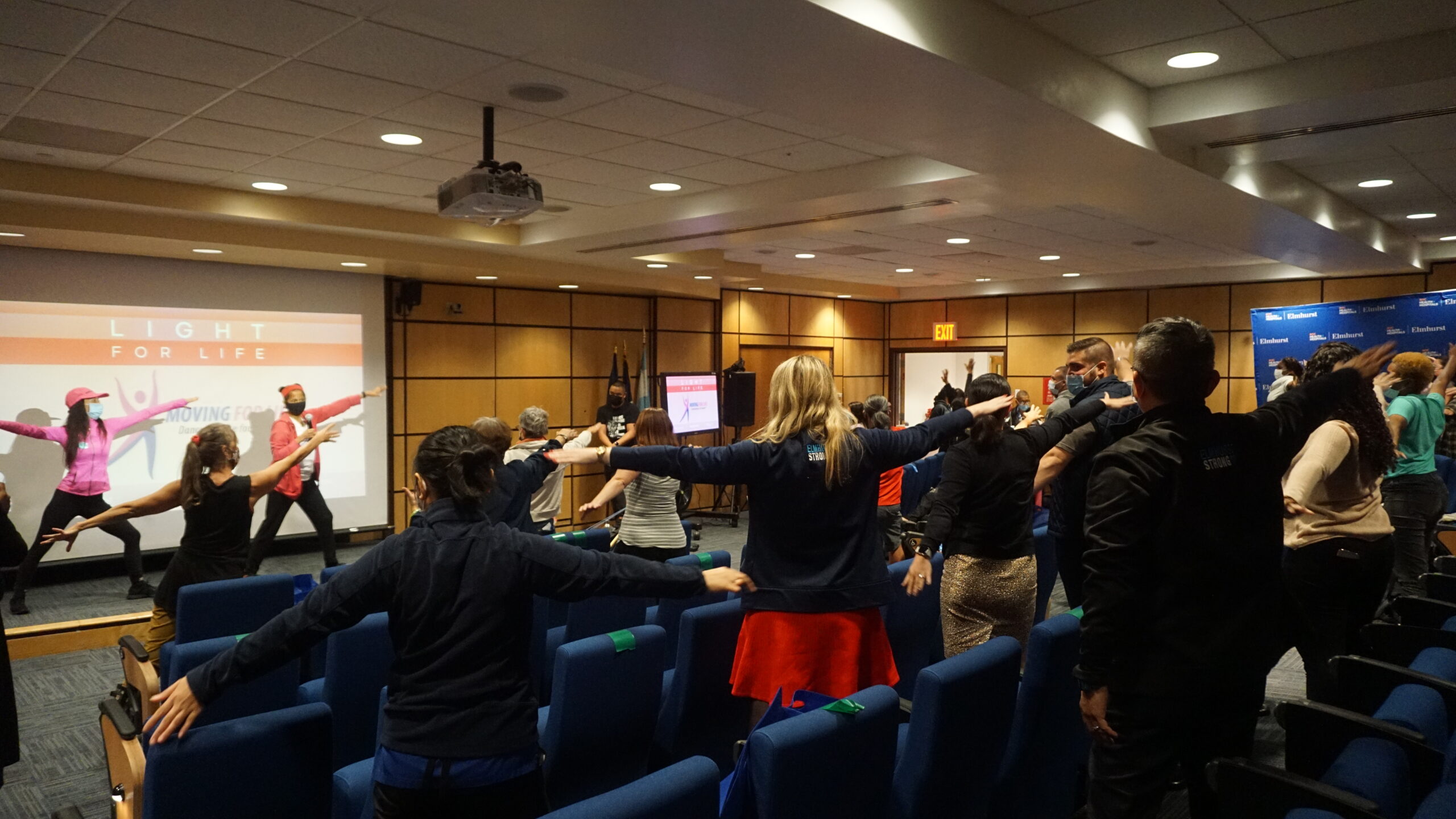
The organization’s approach to its programming starts with a symptom analysis. Common side effects experienced throughout the cancer journey such as numbness, loss of range of motion, fatigue, dizziness or body image are addressed when Eddy and the rest of the team plan classes.
Eddy also has the helpful advantage of a dance background, so she’s often the creative brain behind designing the choreography of the programs to ensure they’re not only effective in treating symptoms, but engaging and inclusive, too.
“I put these movements into a routine and make it fun, and do these movements in a joyous way,” she says. “We are community-minded which you see in our cultural sensitivity and language sensitivity approach. We are really focused on bringing a positive energy—a positive mindset—and shifting attitudes and relieving stress and tension.”
This approach is entrenched in Moving For Life’s rigorous training programs for its instructors. Moreover, about a quarter of its nearly 50 instructors are cancer warriors. Training consists of educational modules that begin with infant neuromotor skills and work up to what Eddy deems “embodied physiology.”
How you carry your body is a reflection of how you feel, emotionally and attitudinally.
“This becomes very important for cancer patients, because as teachers learn where all the organs are in the body, they know about the function of these organs,” Eddy explains. Embodied physiology provides insight from an outward perspective on what movements a participant may especially benefit from or requires accommodations for.
“If someone has lost a body part, how has that affected the tone of the musculature in that area?” Eddy continues. “If you’re not fully using your lungs and breathing, how does that impact your posture?”
During the COVID-19 pandemic, programs for the New York-headquartered organization shifted to virtual. Eddy says this shift allowed for even better observation of participants than before. “You can pin someone and really look at their movement very carefully and spotlight them in a way,” she explains.
Online classes have allowed for a broader reach and greater community building, but that concept is nothing new for the organization. Moving For Life prioritizes inclusivity in its offerings, creating all of its programming through an anti-racist, anti-ableist, body positive lens with bilingual class options. The nonprofit believes everyone should be afforded the opportunity to access therapeutic movement to improve their quality of life.
“I watched my mother fade away [from colon cancer],” Eddy shares. “Before she died, I asked her, ‘If you could do anything, what would you want to do?’ And she said, ‘Dance and travel.’ So, I’m very proud to have this dance program for cancer survivors and cancer patients.”
Learn more at movingforlife.org.

